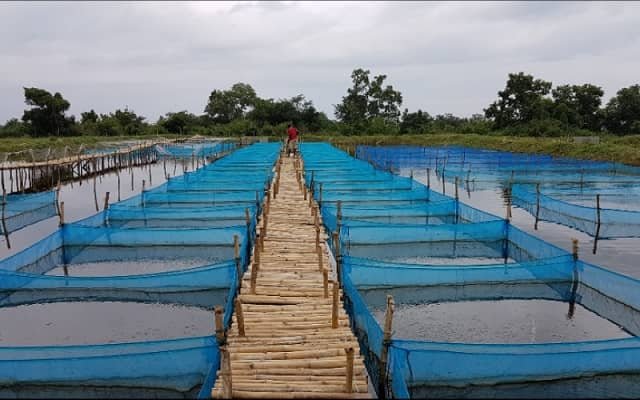The US Department of Agriculture (USDA), National Institute for Food and Agriculture (NIFA), Small Business Innovative Research (SBIR) Program phase 1 request for applications (RFA) for fiscal year 2022 is now published and available on the NIFA website. Here is a link to the RFA. The application deadline is November 3, 2021.
The USDA SBIR program focuses on transforming scientific discovery into products and services with commercial potential and/or societal benefit. Unlike fundamental research, the USDA SBIR program supports small businesses in the creation of innovative, disruptive technologies and enables the application of research advancements from conception into the market.
This RFA includes Aquaculture (SBIR 8.7). There are five priority areas suggested:
– Reproductive Efficiency
– Genetic Improvement
– Integrated Aquatic Animal Health
– Improved Production Systems and Management Strategies for Efficiency and Reduced Environmental Impacts
– Algal Production Systems.
Stay Always Informed
Join our communities to instantly receive the most important news, reports, and analysis from the aquaculture industry.
Awards can be eight months and up to $175,000 or $181,650 if you elect for Technical and Business Assistance (TABA) funds. See page 23 of the RFA for the Aquaculture SBIR 8.7 information.
For questions regarding projects and program, contact Tim Sullivan, National Program Leader, Animal Health and Aquaculture, National Institute of Food and Agriculture, timothy.sullivan@usda.gov, 816-527-5434.
Editor at the digital magazine AquaHoy. He holds a degree in Aquaculture Biology from the National University of Santa (UNS) and a Master’s degree in Science and Innovation Management from the Polytechnic University of Valencia, with postgraduate diplomas in Business Innovation and Innovation Management. He possesses extensive experience in the aquaculture and fisheries sector, having led the Fisheries Innovation Unit of the National Program for Innovation in Fisheries and Aquaculture (PNIPA). He has served as a senior consultant in technology watch, an innovation project formulator and advisor, and a lecturer at UNS. He is a member of the Peruvian College of Biologists and was recognized by the World Aquaculture Society (WAS) in 2016 for his contribution to aquaculture.







